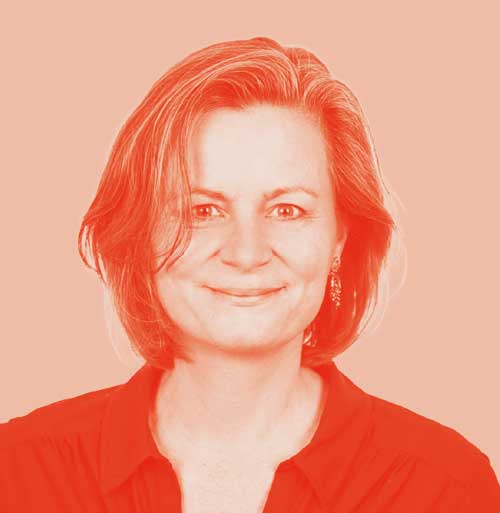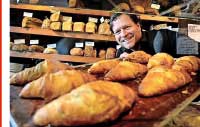Corine De Vries
Editor-in-chief Noordhollands Dagblad, Haarlems Dagblad, De Gooi- en Eemlander, Leidsch Dagblad and IJmuider Courant

Noordhollands Dagblad is the quality newspaper of Noord-Holland with daily stories about current affairs, sport, health and culture. Regional, national and international.
www.noordhollandsdagblad.nl
Founded
1893
Daily readership print
301.600
Daily readership online
92.000
Number of subscribers
(print + digital) 102.929
Podcast
AZ
Journalists employed
100
An international scoop about transgressive behaviour in gymnastics and exposing the flow of money from Tata Europe to India. This is local journalism too.

Without data, our newsroom wouldn’t have realised how interested our readers were in the fate of the 140-year-old artisan bakery Bos in Den Helder. It went bankrupt in February, and the first short online report got lots of hits. The newsroom could see immediately that the visitor numbers were rocketing. We quickly decided to send a journalist to report on it, we interviewed the owner, wrote about crowdfunders who had lost their money and a few days later published an analysis piece about the state of artisan bakers across the Noordkop. Each of these remarkably popular pieces was based on solid journalism that brought good copy for the paper and delivered new subscriptions too.
In 2020, the regional newspapers of Mediahuis Netherlands -– Noordhollands Dagblad, Haarlems Dagblad, De Gooi- en Eemlander, Leidsch Dagblad and the IJmuider Courant – switched to web-first and data-informed operations. We now have numerical insight into our subscribers’ interests and regularly adapt our journalistic choices to them. We write better, faster and more frequent follow-ups, we publish more personal stories, and we write more often about the effects of the housing market, about restaurants, shops, hair salons and bankruptcies. We are quicker to go out on the street to speak with eyewitnesses, and we invest in investigative journalism. It’s encouraging to see that a thorough reconstruction of regional politics also scores highly among readers. Our readers like well-developed, well-written stories. And they want to pay for it, according to our fast-growing subscriptions.
Of course, we are also proud of our world-first report that broke through the taboo of transgressive behaviour in gymnastics: Marco Knippen’s interview with coach Gerrit Beltman. For the first time, a renowned coach confessed that he had mistreated his students, and his confession was supported in our papers by testimonies from 10 gymnasts. From The New York Times to Der Spiegel and from Sporza to the Straits Times in Singapore, many overseas media reported on this. In the Netherlands, it led to questions in parliament, an independent inquiry and the temporary scrapping of the top gymnastics programme for women.
Also special was the extensive financial investigation into how Tata Europe transferred billions of euros to its parent company in India. It was written by Bart Vuijk, who spent years working on the case, despite the active opposition he encountered at Tata. Working with an independent accountant, Vuijk released a thorough analysis of more than 50 annual reports. In a series of articles, he described meticulously how the financial structures worked.
Something completely different was our online memorial day, a special end to the months-long project commemorating the last witnesses to liberation 75 years ago. On 4 May, we offered more than 50 local liberation committees and other small initiatives a digital stage for mini memorials, filmed by our own journalists. From the Last Post and laying of wreaths to poems and interviews: multiple videos from across our patch appeared online every hour for 12 hours. It’s a great example of how closely connected the paper is to the region.